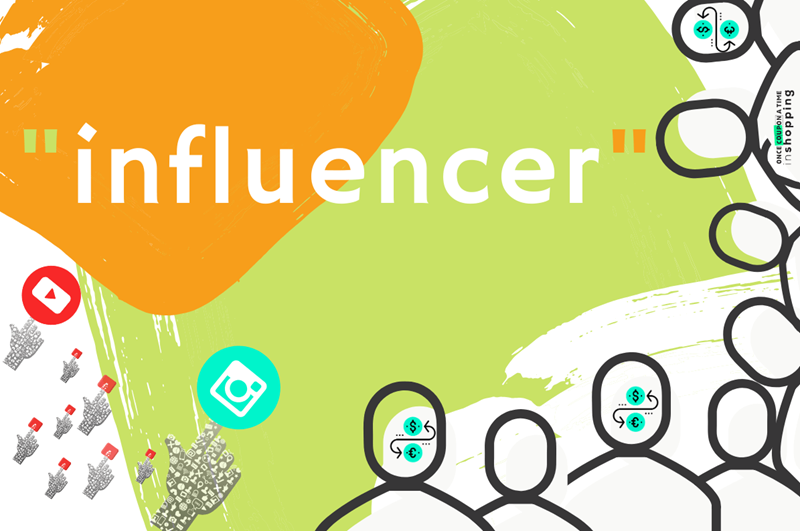
Offering a platform for users to express themselves and find like-minded people, social media has revolutionized the traditional advertising and marketing strategies. Until a few years ago, the most efficient option for brands to reach a wider target audience was through TV ads, which offered limited airtime. Now, however, we are constantly exposed to ads and marketing content, which are catered to us through our smart phones in accordance with our personal interests and customer profiles.
“Influencer marketing” is a new marketing strategy that has entered our lives with the arrival of social media platforms. From big to small, all kinds of brands engage in influencer marketing activities in a bid to reach customers that can be interested in their products and services. What makes social media and the concept of influencer marketing so attractive for brands? What are the advantages that social media offers for them? To answer these questions, we first need to have a look at the relationship between social media influencers and their followers.
How Do Influencers Engage with the Customer?
An influencer is a person who uses social media platforms to inform or entertain people by creating content in a specific topic like beauty, fitness, fashion, travel or food, which can be their profession or just a hobby. Most influencers create content for their followers in the area they specialize in, which gives them the opportunity to form a direct and personal relationship with their followers, which is something brands fail to do with their customers. The relationship between an influencer and their followers is transparent and it is based on mutual trust, which is an attractive asset for brands because customers take brands and ads in general with a grain of salt. So, social media offers a crucial platform for customers who want to know about the experiences and suggestions of fellow customers before they commit to buying a product or service.
Why Do Brands Team Up with Social Media Celebrities?
Brands aim to reach a specific target audience through their partnership with influencers. Social media influencers have a follower base who are interested in authentic content, which brands regard as a crucial tool.
 For instance, let’s say that a fitness brand has teamed up with a celebrity to promote their products and they filmed ads with this celebrity as the face of their brand. The customer knows that the brand paid a lot of money for this celebrity to promote their products. They know that it’s a commercial interaction and that the celebrity’s endorsement is not based on personal experience. This kind of a marketing strategy minimizes the customer’s trust in both the brand and the customer. This is where influencers come into play. If an influencer already creates content about fitness on a daily basis and has a follower base interested in their content, their partnership with the same brand looks much more convincing merely because it is shaped by the influencer’s personal experience with the brand. When an influencer creates their own marketing content for the same fitness brand and shares their personal experience with the products, their followers find the brand and the marketing content much more reliable. Given that trust is the missing link in the relationship between a brand and its prospective customers, the role of an influencer is to act as the missing link. Even though it is quite difficult to measure how this kind of a relationship affects the sales volume of a brand, it is obvious that influencer marketing strategies have a big role in convincing customers to buy a certain product.
For instance, let’s say that a fitness brand has teamed up with a celebrity to promote their products and they filmed ads with this celebrity as the face of their brand. The customer knows that the brand paid a lot of money for this celebrity to promote their products. They know that it’s a commercial interaction and that the celebrity’s endorsement is not based on personal experience. This kind of a marketing strategy minimizes the customer’s trust in both the brand and the customer. This is where influencers come into play. If an influencer already creates content about fitness on a daily basis and has a follower base interested in their content, their partnership with the same brand looks much more convincing merely because it is shaped by the influencer’s personal experience with the brand. When an influencer creates their own marketing content for the same fitness brand and shares their personal experience with the products, their followers find the brand and the marketing content much more reliable. Given that trust is the missing link in the relationship between a brand and its prospective customers, the role of an influencer is to act as the missing link. Even though it is quite difficult to measure how this kind of a relationship affects the sales volume of a brand, it is obvious that influencer marketing strategies have a big role in convincing customers to buy a certain product.
It’s not all about the follower count anymore.
Contrary to popular belief, the number of followers is not the first thing a brand looks for in an influencer. It is more important for the influencer to have a personal relationship with their followers through the authentic content they create. In addition to macro influencers with millions of followers, brands also team up with micro influencers who have less than 10,000 followers. You might find it odd to see a big brand team up with a micro influencer with only 10,000 followers. However, micro influencers help brands find the niche target audience they are looking for since they create content on a specific topic. Also, when an influencer with a lower follower count teams up with a brand, their followers react more positively and find the marketing content much more believable, which increases their likelihood of buying the products.
Even though influencer marketing looks like a brand-new marketing strategy, it is nothing new for customers to do some research on the internet to find reviews by customers or testimonies by experts. Before Instagram, customers used to check online platforms and forums like Reddit to find out about other people’s experiences with the products they want to buy. It wasn’t rare for customers to write about their positive or negative experiences with a certain product. Becoming aware of the potential of online platforms to accelerate their relationship with the customers, brands are now allocating higher marketing budgets for social media platforms. Since they have a follower base interacting with one another, working with micro influencers is an attractive marketing strategy for brands to promote their products and services.
The picture gets gloomy if you go overboard.
Thanks to influencer marketing customers find products and brands that are in line with their interests, which means influencer marketing has some advantages for customers, too. When a customer finds out about a product or a brand through someone they trust and interact with on a daily basis, they are more likely to trust the brand. They find the information more believable because they regard it as the expert opinion on the brand and product – which, in my opinion, is rarely the case. Even though it has its pros to some extent, it goes without saying that there are some cons, too. In some cases, the followers’ trust in the influencer is abused. They are convinced into thinking that buying the products endorsed by the influencer will let them have the “ideal” life they watch the influencer enjoy on a daily basis, which encourages followers to waste their money on products they don’t need.
The rising popularity of influencer marketing strategies has some disadvantages for influencers too. Even though it is an advantage for many influencers to be earning money by working in an area they are passionate about, it can be dangerous to have to compare themselves to other social media personalities or influencers constantly. Many influencers find it challenging and depressing to have an online presence and create an online persona to maintain that presence. The duality of their lives can lead to depression, low self-esteem, etc. Therefore, it is incredibly important for both influencers and customers to be aware of the relationship between brands, influencers and their followers. Given that most of these influencers and their followers are too young, it is important that they know the boundaries of the interaction they have on a daily basis.































REVİEWS - 1 reviews